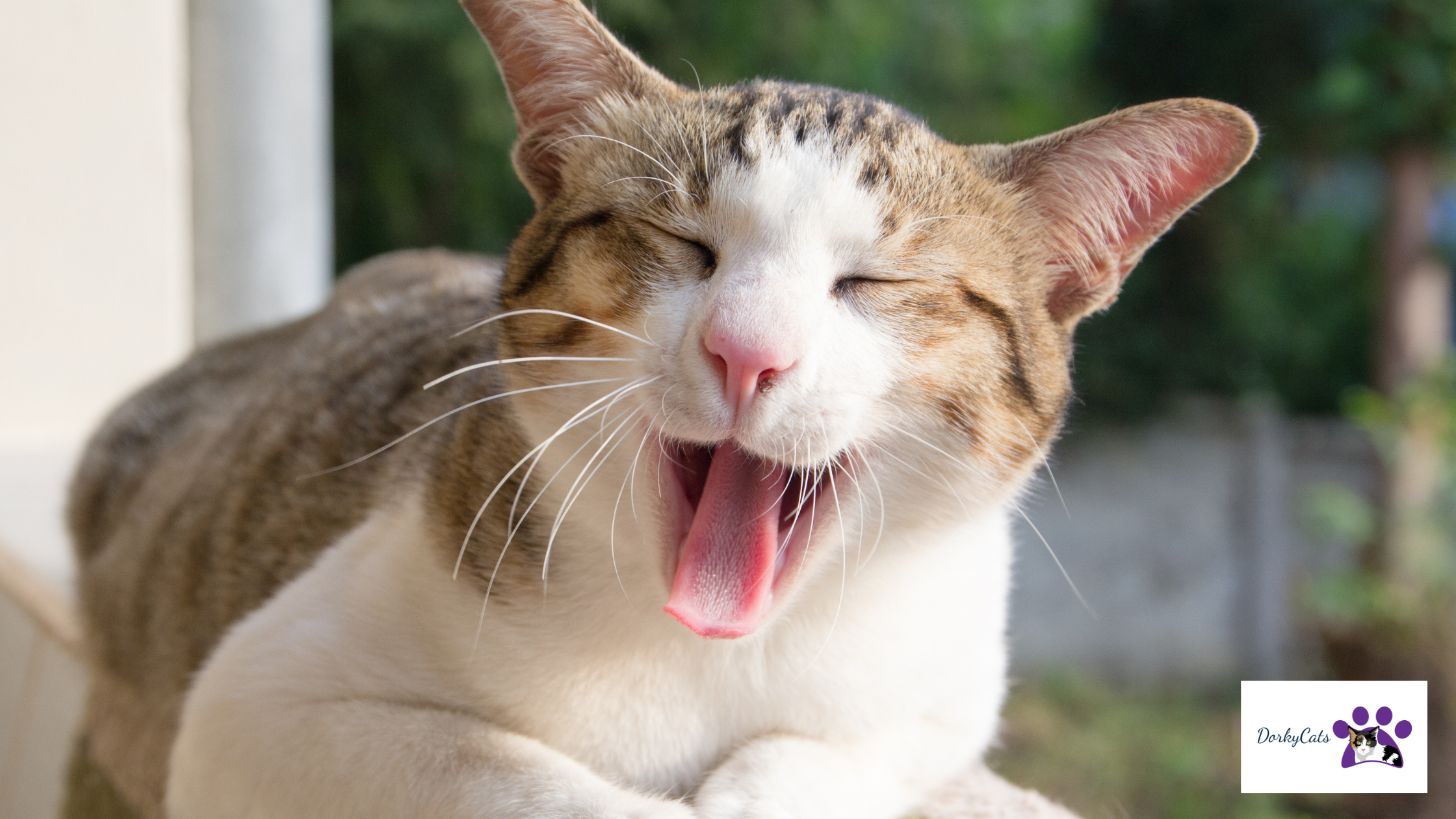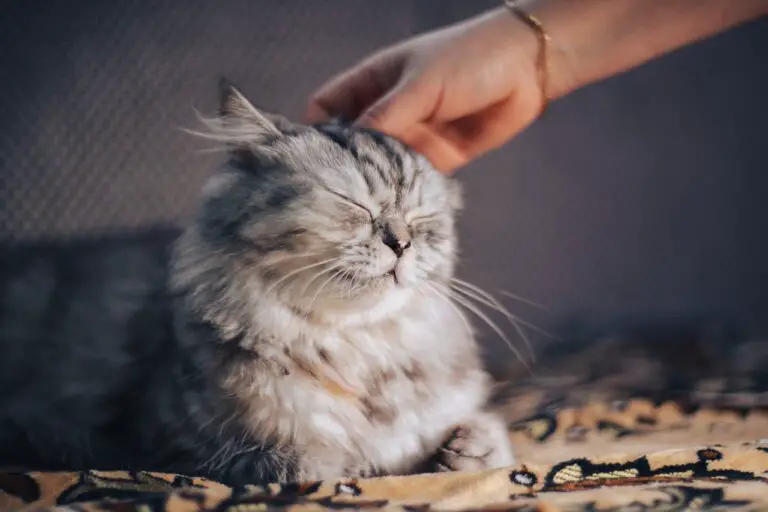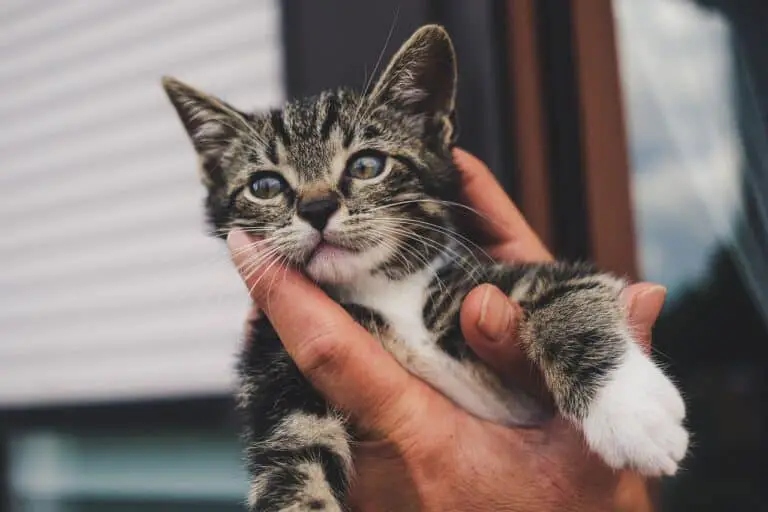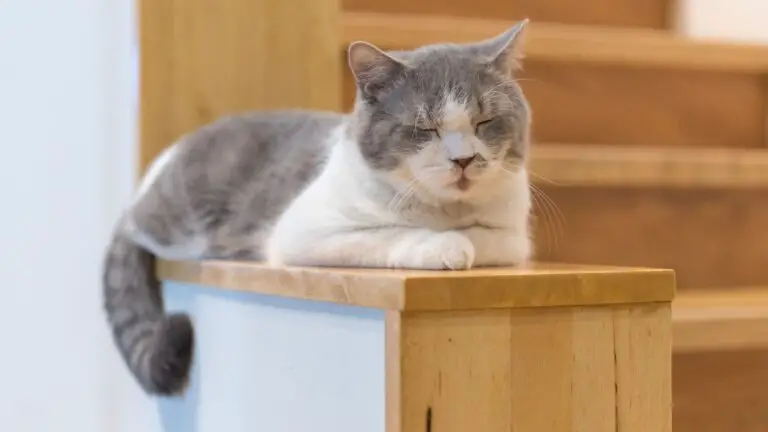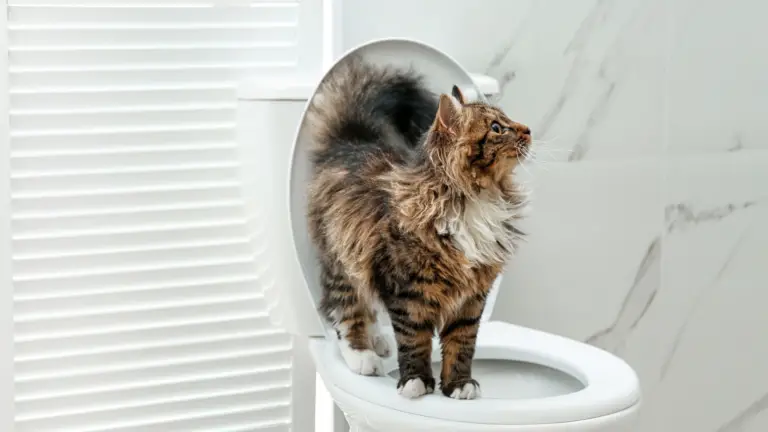WHY DOES MY CAT SIGH? 5+ REASONS
Why does my cat sigh? If you pay attention to your cat, you might catch him making some soft sounds, including sighing. This can happen when your cat is sleeping or in other instances.
Cats may sigh for a variety of reasons. For example, some cats may sigh when they are content or relaxed, while others may sigh as a sign of stress or discomfort. It can also be a sign of breathing difficulty or pain.
Let’s find out more about why cats sigh.
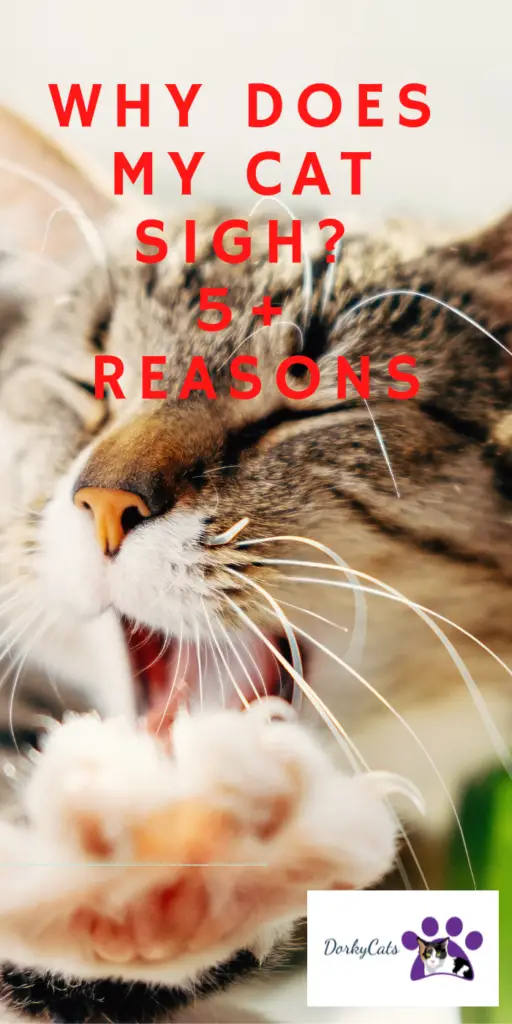
WHAT ARE THE MAIN REASONS FOR THE CAT SIGHING?
Cats can sigh sometimes, but it cannot be compared with the sound and sighing made by humans. Humans can also sigh on purpose because they want to display specific emotions. It is not the same with cats.
The reasons and functions for sighing in cats may differ from humans. In humans, sighing is often a reflexive response to help regulate breathing and lung volume (although it can also be used dot show annoyance and boredom).
Cats, on the other hand, may sigh for a variety of reasons, as I mentioned before, such as:
- Expressing relaxation
- Stress
- Discomfort
- Pain
- Breathing difficulty
It’s essential to observe your cat’s behavior and body language along with the sighing and consult with a veterinarian if you have any concerns.
1. EXPRESSING RELAXATION
Cats can sigh to express relaxation or contentment. A cat may sigh as a sign of being relaxed and happy, similar to a human sighing when they are comfortable. It is common to spot a cat sighing during a nap.
2. STRESS
A cat may sigh as a sign of stress or discomfort. This could be due to a change in their environment, a new person or animal in the house, or an underlying medical condition. Cats can get stressed easily if there are too many changes in the house.
Make sure to remove stress factors from the environment.
3. BREATHING PROBLEMS
Some cats may sigh due to breathing difficulties, such as asthma or other respiratory issues. If you think this is the problem, you should contact the vet as quickly as possible.
4. PAIN
A cat may sigh if they are in pain, whether from an injury or an underlying medical condition.
5. AGE
As cats age, they may sigh due to difficulty with breathing or other age-related health issues.
These are just some possible reasons, and it’s always best to consult a veterinarian if you have any concerns. In addition, if your cat is displaying other signs of stress, such as hiding, avoiding contact, or excessive grooming, it may be a good idea to consult your veterinarian.
WHY DOES MY CAT SIGH WHEN PLAYING?
Cats can make various vocalizations when playing, including sighing—sighing when playing can indicate that your cat is relaxed and content.
Some cats also do this when they are happy and engaged in the play. It’s not uncommon for cats to sigh or make other vocalizations, such as chattering or purring, when playing.
Cats can also make these sounds when observing potential prey or stalking their toys as part of a natural hunting behavior. But, generally speaking, sighing while playing is not cause for concern and can be seen as part of a cat’s regular vocal repertoire.
WHY DOES MY CAT EXHALE LOUDLY?
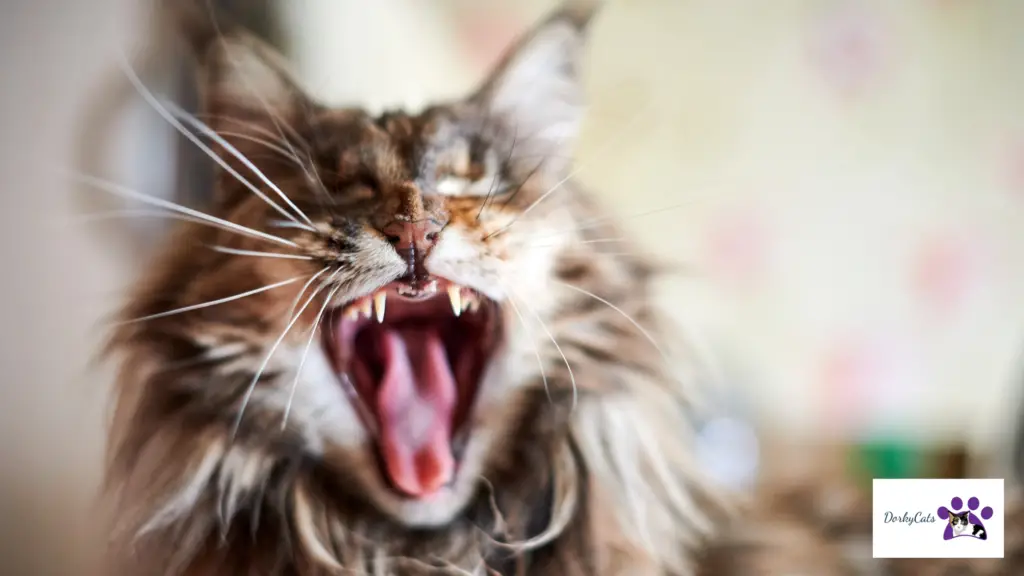
Cats may exhale loudly for various reasons, including being content, comfortable, or relaxed. Cats also exhale heavily while sleeping as they tend to breathe deeper and slower than when awake.
This type of breathing is considered to be expected. However, loud or labored breathing can also signify a respiratory issue, such as asthma, a respiratory infection, or a heart problem.
It’s essential to observe your cat’s breathing patterns regularly and consult with a veterinarian if you notice any changes or if your cat appears to be experiencing difficulty breathing.
It’s also worth paying attention to your cat’s environment; conditions such as hot or humid weather or heavy air pollution could cause cats to pant or breathe heavily.
WHY DOES MY CAT HUFF AT ME?
Cats may huff or make other vocalizations, such as growling or puffing their fur, as a way to express their feelings or communicate with others.
A huff can indicate that a cat is feeling stressed, annoyed, or frustrated. Sometimes, a cat may huff as a warning before they become more aggressive or lash out. Therefore, it’s essential to pay attention to your cat’s body language and other behaviors to determine the cause of the huffing.
If your cat huffs at you specifically, it could signify that they are uncomfortable with your current behavior or actions. They might not like being petted in certain areas, or perhaps you’ve accidentally interrupted them during an activity they enjoy.
WHY DOES MY CAT HUFF WHEN PLAYING?
Cats may huff or make other vocalizations, such as growling, when they are playing as a way to express their excitement or enthusiasm for the activity. A huff can indicate that a cat is feeling engaged, or it could be a form of play vocalization.
These types of sounds can be associated with a cat’s natural hunting behavior, as they may huff while they are observing potential prey or stalking their toys.
If your cat is playful and does not display any signs of fear, pain, or aggression, it can be interpreted as a way for cats to express themselves during playtime. However, if you have any concerns about your cat’s behavior, it is always a good idea to consult with a veterinarian or a professional animal behaviorist for advice.
WHEN SHOULD I WORRY ABOUT MY CAT SIGHING?
It is generally not a cause for concern if a cat occasionally sighs, especially if they appear relaxed and content.
However, if you notice that your cat is sighing frequently or excessively, or if other signs of distress or discomfort accompany the sighing, it may be cause for concern.
You should consult with a veterinarian if any of the following signs accompany your cat’s sighing:
- Rapid or shallow breathing
- Open-mouthed breathing
- Labored breathing
- Gagging or coughing
- Wheezing
- Shortness of breath
- Loss of appetite
- Depression
- Lethargy
- Pain or discomfort
- Changes in behavior
- Changes in sleeping patterns
FREQUENTLY ASKED QUESTIONS
Is it normal for a cat to sigh?
It is not unusual for a cat to sigh, especially if they are relaxed and content. However, it is not considered normal for a cat to sigh frequently or excessively. If your cat is sighing more often than usual, or if other signs of distress or discomfort accompany it, it is best to consult a veterinarian.

